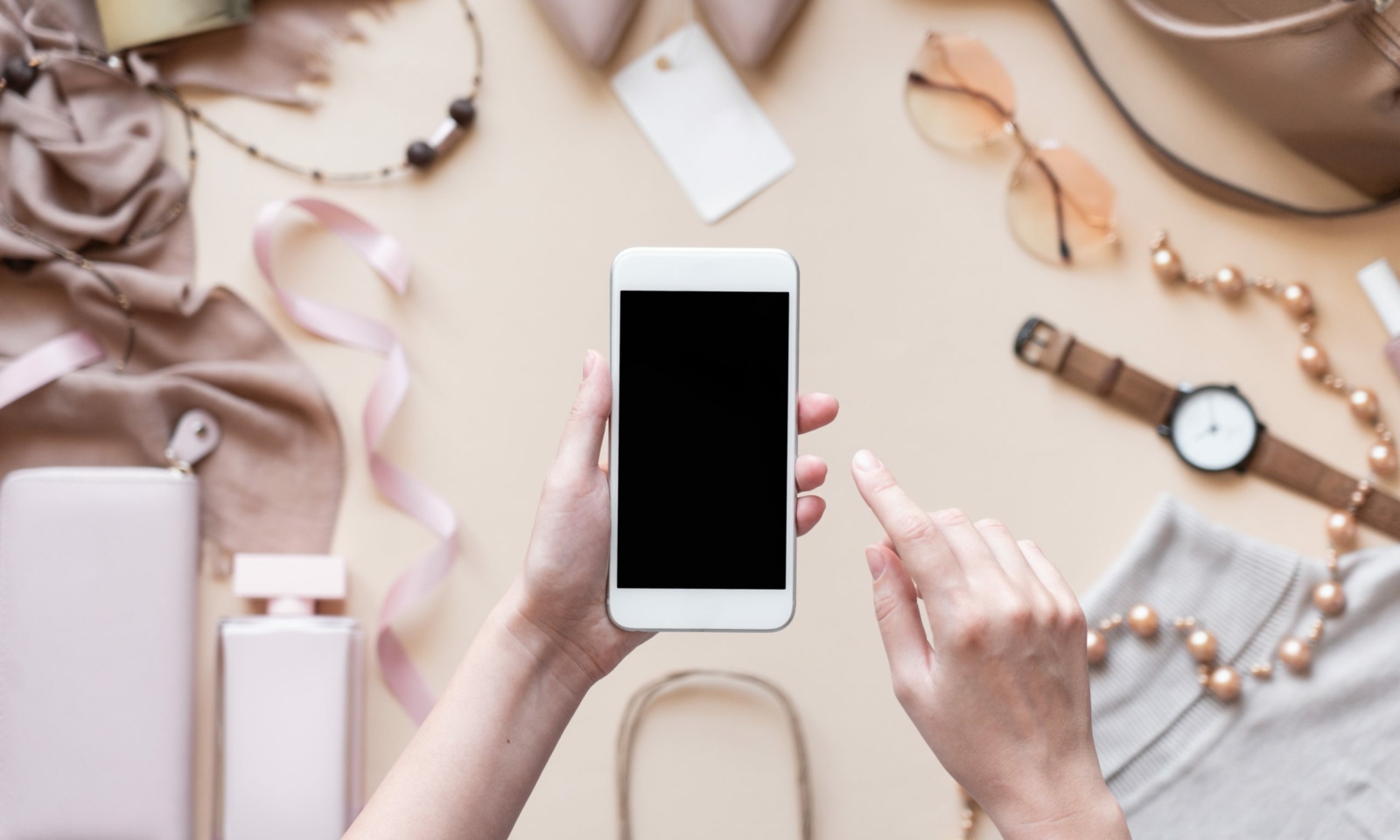The luxury sector has seen significant growth and transformation.
As technology continues to shape consumer behaviour, luxury brands are embracing digital and omnichannel strategies to appeal to their discerning clientele.
In this blog, we’ll explore the latest luxury ecommerce trends and delve into how to effectively target the luxury consumer.
The luxury landscape
The European luxury sector is highly reliant on physical retail. According to Retail X’s Europe Luxury Sector Report 2023, 80% of sales in 2022 took place in-store. But this doesn’t mean that luxury brands should neglect their online channels by any means. Younger, digital-first shoppers are turning to luxury ecommerce as an alternative to fast fashion, opting to spend more on a single, higher-quality piece.
Who is the luxury consumer?
The luxury consumer tends to be affluent and discerning. They seek high-quality, exclusive and premium products, as well as experiences. These consumers are typically willing to spend more on luxury items due to their desire for superior craftsmanship, unique designs and the status and prestige associated with luxury brands.
Characteristics of the luxury consumer may include:
High disposable income: Luxury consumers generally have a significant level of disposable income, allowing them to afford luxury products and experiences without major financial constraints.
Discerning taste: They have refined and discerning tastes, appreciating the finer details, craftsmanship, and aesthetics of luxury goods.
Status and prestige: Luxury consumers are drawn to brands that offer a sense of status, exclusivity, and prestige. Owning luxury items can serve as a symbol of wealth, success, and social standing.
Aspiration for quality: The luxury consumer prioritises quality over quantity. They value products that are made from premium materials and are built to last, even if it means paying a premium price.
Personalisation and experience: Luxury consumers expect personalised experiences and exceptional customer service. They desire an emotional connection with the brand and value experiences that cater to their individual preferences.
Brand loyalty: Luxury consumers often exhibit strong brand loyalty. Once they establish a positive relationship with a luxury brand, they are more likely to remain loyal and continue purchasing from that brand.
Trends and innovation: While valuing tradition and heritage, luxury consumers also appreciate innovation and cutting-edge design. Luxury brands must strike a balance between tradition and modernity to appeal to this audience.
Social and environmental consciousness: An increasing number of luxury consumers are becoming socially and environmentally conscious. They appreciate brands that embrace sustainable practices and ethical sourcing.
Luxury ecommerce trends: how to target the luxury consumer
1. Personalisation and customer experience
The luxury consumer expects a personalised and exclusive shopping experience. To meet this demand, luxury ecommerce platforms are leveraging advanced data analytics and artificial intelligence (AI) to understand individual preferences and shopping behaviours. By analysing customer data, such as browsing history, purchase patterns, and social media interactions, luxury brands can curate personalised product recommendations and tailor their marketing messages accordingly.
Additionally, delivering an impeccable customer experience is crucial. Luxury brands must provide seamless and efficient online shopping journeys, offering easy-to-navigate websites, fast loading times, and responsive customer support. Exceptional customer service plays a pivotal role in creating lasting impressions and fostering brand loyalty.
2. Visual storytelling and immersive content
Luxury products are often associated with captivating stories and emotions. In the digital realm, brands are focusing on visual storytelling and immersive content to engage their luxury audience. High-quality product imagery, videos, and interactive elements enable brands to create a sense of exclusivity and allure.
Virtual reality (VR) and augmented reality (AR) technologies are also becoming more prevalent in luxury ecommerce. These tools allow customers to virtually experience products, try them on, or visualise how they fit into their lives, enhancing the online shopping experience significantly.
3. Sustainability and ethical practices
In recent years, sustainability and ethical considerations have become integral to the luxury consumer’s mindset. Luxury brands are responding by incorporating eco-friendly practices, transparent supply chains, and ethical sourcing of materials. Communicating these initiatives to consumers through ecommerce platforms helps build trust and resonates with environmentally-conscious buyers.
According to Retail X’s survey, 77% of shoppers in Europe are interested in buying sustainable luxury products, with 51% willing to pay 10% extra for them. Many luxury brands are launching recycling initiatives in which customers can hand over their pre-loved items in exchange for a discount. If you’ve ever considered launching your own resale platform, this is the time to do it. Resale platforms may be especially beneficial for luxury brands, as items are higher price points are generally designed to last a long time. Pre-loved items are also sold at a lower price point than buying brand new, making these items more accessible to a larger audience.
4. Influencer marketing with a personal touch
Influencer marketing remains a potent tool, but for luxury ecommerce, it’s taking a more personalised approach. Luxury brands are collaborating with micro-influencers, experts, and celebrities who align with their values and aesthetics. These influencers can place products in front of their niche and highly engaged audience authentically, promoting a more intimate connection between the brand and its potential customers.
5. Limited editions and exclusivity
Creating a sense of exclusivity is a hallmark of luxury, and ecommerce is no exception. Luxury brands are leveraging the scarcity principle by offering limited editions and exclusive collections online. Time-limited sales, pre-orders, and special access to products cater to the luxury consumer’s desire to own unique and rare items.
6. Omnichannel experience
An omnichannel approach is becoming increasingly important in luxury ecommerce. Over 50% are shopping online (38% are using mobile) and luxury consumers expect a seamless transition between online and offline touchpoints. Brands should provide a cohesive experience across their website, mobile app, social media, and physical stores. For instance, allowing customers to reserve products online and try them in-store or offering online purchase options for in-store exclusive items creates a holistic and convenient shopping journey. As covered in our blog on how to bring the luxury retail experience online, it’s never been more important to invest in your website and make sure it’s optimised across all devices. Luxury brands need to find ways to bring the luxury retail experience online in order to meet customer expectations and bridge the gap between online and offline.
7. Social commerce and shoppable content
Social media platforms have evolved into shopping hubs, with luxury brands leveraging social commerce to their advantage. The luxury consumer is highly active on platforms like Instagram, Pinterest, and TikTok and brands are using these channels to showcase products and offer shoppable content. Direct integration between social media and ecommerce allows customers to make purchases seamlessly while engaging with brand content.
The future of luxury ecommerce
The luxury ecommerce landscape is continually evolving, driven by technology, changing consumer expectations, and a focus on sustainability and personalisation. To successfully target the luxury consumer, brands must prioritise customer experience, embrace visual storytelling, and align with ethical practices. By staying attuned to the latest trends and embracing innovation, luxury brands can thrive in the digital era and forge lasting connections with their discerning clientele.
Looking to launch a mobile-first website for your luxury ecommerce brand? Need a hand fine-tuning an omnichannel retail strategy? From Barbour to Gingerlily, we’ve got a wealth of experience working with luxury brands – get in touch to find out how we can work together.

